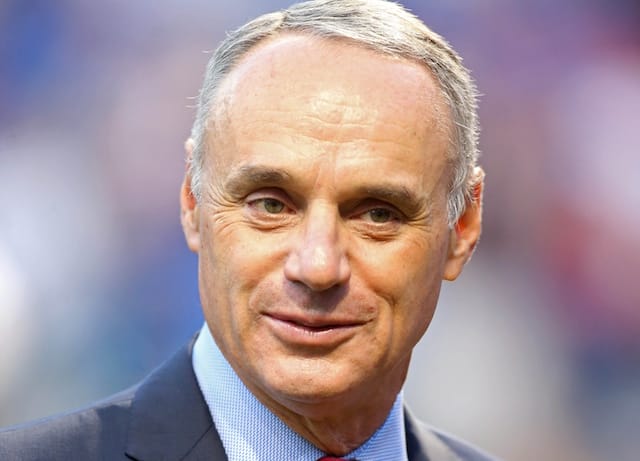Two weeks after Major League Baseball and the MLB Players Association came to terms on a new collective bargaining agreement, the five-year pact was officially ratified. Every team but the Tampa Bay Rays voted to approve the CBA, while the union’s executive board was said to have unanimously passed it.
Several changes are being implemented under the new CBA, including capping the number of instances in which a player can be extended the qualifying offer to once. What’s more, draft pick compensation attached to a qualifying offer is now based upon the value of the contract that player signs, and if the signing team is over the luxury tax threshold.
The bar will be set at $195 million in 2017, and reach $210 million by the conclusion of the five-year CBA. Tax penalties remain in place, but will be tiered and include surcharges. That’s of particular interest for big-market teams such as the Los Angeles Dodgers.
The Dodgers were levied a $31.8 million luxury tax bill for their 2016 payroll, an MLB-high, and have faced $113.5 million in luxury taxes from 2013-16.
While there was talk of expanding rosters throughout the season, that did not become a reality. Clubs will continue to carry 25 players throughout the year, and the Sept. 1 roster expansion is still capped at 40. There reportedly was consideration given to decreasing that number.
Additional changes with the new CBA include the following:
- First-time offenders for exceeding the luxury tax threshold face a 20 percent penalty, which rises to 30 percent for second-time offenders, and 50 percent for third-time. In addition, if a team is between $20 million and $40 million over the threshold, they also pay a 12 percent surtax. That increases to 42.5 percent if a club is $40 million over, and 45 percent for a second time going over by at least $40 million.
- The 15-day disabled list, which previously was the shortest DL stint for anyone who isn’t dealing with a concussion (concussion DL is seven days), has now been decreased to 10 days.
- There was talk of a possible international draft, but it was voted against. However, each team’s pool money will be hard-capped in the $5 million to $6 million range per club, which is significantly less than previous guidelines allowed. The slot money for the No. 1 pick in the U.S. draft also went down from just over $9 million to $7.4 million.
- The regular-season schedule has been expanded by four days, but it still calls for a 162-game slate, which means teams will have more actual (not travel) off-days throughout the course of the year.
- With the intention to further crack down on performance enhancing drugs, the Joint Drug Prevention and Treatment Program was ratified to allow for an increase in random urine and blood tests both in-season and during the offseason. The penalties will be increased to 50 games for a second-time violation, 100 games for a third time-violation and up to a permanent suspension for a fourth-time violation.
- A new ban will be placed on smokeless tobacco as well, but it will be grandfathered in, so beginning in 2017, rookies will be prohibited from using smokeless tobacco.
- Along with moving away from the All-Star Game determining home-field advantage in the World Series, the selection process for reserves no longer falls in the hands of managers. Fan voting will still determine starters, players will vote on the next wave of participants, and the commissioner’s office will pick final selections.
- Players on the winning team in the All-Star Game will split a $20,000 bonus, and rosters have been trimmed from 34 to 32.
